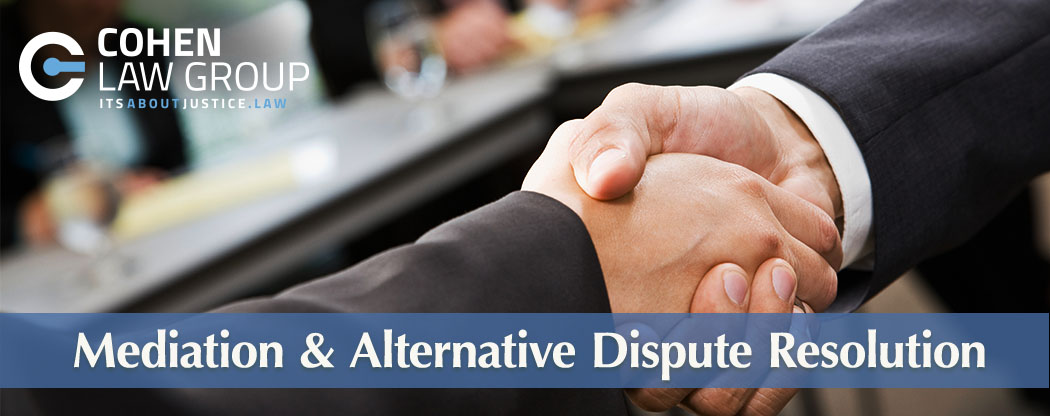Mediation and Alternative Dispute Resolution
Conflicts happen. We get into disputes with neighbors, drivers, landlords, creditors, spouses and there is just no way to resolve it without getting in each others’ face.
Tempers flare, emotions run high, and court cases get filed. No one wants to go to the courthouse. Even if you’re absolutely sure your case is a winner, the thought of actually going before a judge is an intimidating unknown even when represented by a trustworthy attorney.
Add the costs of filing, time, and representation and quickly small squabbles become major fights.
For over 30 years Florida has been a nationwide leader in alternative dispute resolution (ADR). In most civil matters at the county court level (where the suit is less than $15,000) judges require litigants to meet and discuss their dispute with a mediator as one of the first steps to moving a case forward.
Often attorneys themselves, mediators are neutral third party facilitators trained and certified by the state Supreme Court to bump cases onto a path of mutual resolution. After a brief opening explanation of the procedures and assurances of confidentiality, the parties often separate into adjoining rooms called caucus rooms.
The mediator moves between rooms trying to slowly and respectfully help the litigants realize that they may not be as far apart as they may have thought. With the fear and intimidation factors removed, resolution happens in the vast majority of cases in an hour or less. The mediator prepares a short (often one page) stipulation delineating the agreement and all the duties required by both sides and each receives a copy.
The original signed agreement is then filed with the court which retains jurisdiction over the matter to force its execution. The case remains open and enforceable by the court until all terms of the stipulation are satisfied, at which time the case is automatically dismissed without any further action required. The goal is for both parties go their separate ways relieved and satisfied, if not happy.
If the case is not resolved, the mediator declares an impasse and the case continues to trial as if nothing had happened. If either party fails to honor the stipulated agreement, the non-breeching party simply files an affidavit with the court stating such and the case continues to trial.
ADR has become a popular tool across the entire state to save both the people and the court time and money for nearly all civil matters because it gives the parties all the power. The most important thing to bring to a pre-trial conference or mediation is an open mind. You can’t control the other side of the table, but you can control your own.
Here are a few simple factors to think about before you even get in the car:
1. What do you NEED from the suit? (bottom line numbers and don’t forget court costs and filing fees)
2. Where are you willing to COMPROMISE? (time for payment, place of performance, forms of payment, alternatives to money)
3. What do you have that the other side may want? (something free to you may be invaluable to your opponent)
4. Most importantly, you have nothing to lose and everything to gain by going and maintaining a positive attitude
DISCLAIMER: This website is for informational purposes only and does not provide legal advice. Please do not act or refrain from acting based on anything you read on this site. Using this site or communicating with Cohen Law Group through this site does not form an attorney/client relationship. This site is legal advertising. Please review the full disclaimer for more information by clicking here.

